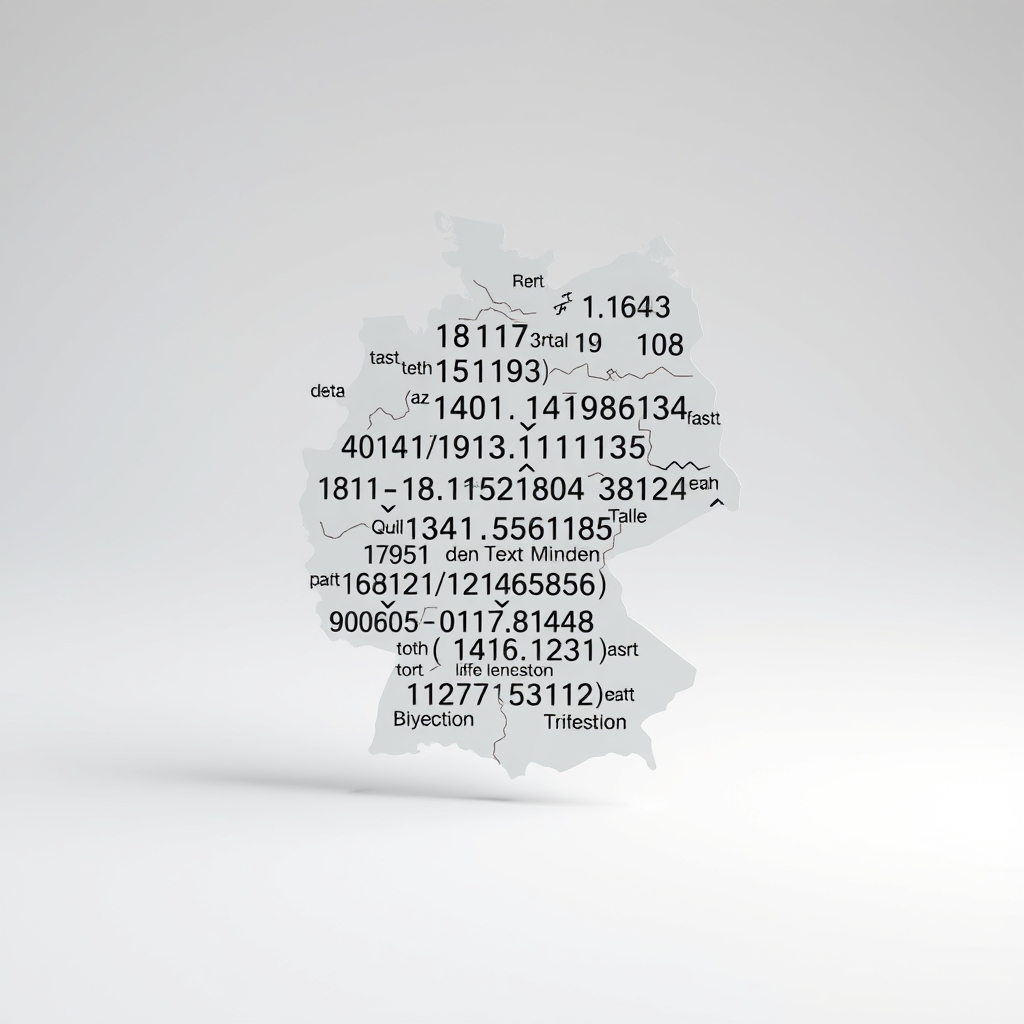Postal Code Global API vs Germany Postal Code API: What to Choose?

When it comes to integrating postal code functionalities into applications, developers often face the challenge of choosing the right API. In this blog post, we will compare two prominent APIs: the Postal Code Global API and the Germany Postal Code API. Both APIs offer unique features and capabilities that cater to different needs, making it essential to understand their strengths and weaknesses before making a decision.
Overview of Both APIs
The Postal Code Global API is a powerful and versatile tool that provides users with seamless access to a vast repository of zip code data from various regions around the world. This API is designed to meet the needs of developers, businesses, and organizations looking to streamline their processes, improve user experience, and optimize location-based functionality. With its broad coverage and accuracy, the Postal Code Global API allows developers to create location-based applications that offer enhanced functionality and real-time data.
On the other hand, the Germany Postal Code API is specifically tailored for developers needing access to a database of zip codes for all regions of Germany. This API enables users to search for postal codes by city, street, or address, and obtain the corresponding geographical coordinates. It is particularly useful for companies looking to optimize logistics operations, validate addresses, and enhance location-based services.
Feature Comparison
Postal Code Global API Features
One of the key features of the Postal Code Global API is the ability to get information by zip code. To use this feature, developers must enter a zip code in the parameter. This functionality allows users to retrieve detailed information about a specific postal code, including city names, state/province details, country codes, and geographic coordinates.
{"query":{"codes":["99950"],"country":null},"results":{"99950":[{"postal_code":"99950","country_code":"FI","latitude":"69.47290000","longitude":"25.95270000","city":"Karigasniemi","state":"Lapland","city_en":"Karigasniemi","state_en":"Lapland","state_code":"19","province":"Pohjois-Lappi","province_code":"197"},{"postal_code":"99950","country_code":"MX","latitude":"21.46910000","longitude":"-103.10430000","city":"El Rescoldo","state":"Zacatecas","city_en":"El Rescoldo","state_en":"Zacatecas","state_code":"32","province":"Apozol","province_code":"001"},{"postal_code":"99950","country_code":"TR","latitude":"40.32580000","longitude":"37.55550000","city":"Yenierenky","state":"Kktc","city_en":"Yenierenky","state_en":"Kktc","state_code":"","province":"skele","province_code":""},{"postal_code":"99950","country_code":"US","latitude":"55.34220000","longitude":"-131.64780000","city":"Ketchikan","state":"Alaska","city_en":"Ketchikan","state_en":"Alaska","state_code":"AK","province":"Ketchikan","province_code":""}]}}The response includes several fields, such as postal_code, country_code, latitude, longitude, city, and state. Each of these fields provides valuable information that can be utilized in various applications, such as mapping services, logistics planning, and demographic analysis.
Another important feature of the Postal Code Global API is its ability to customize data requests. Users can specify different zip codes in the query parameter, allowing for targeted information retrieval. This flexibility is particularly beneficial for applications that require dynamic data based on user input or location.
Germany Postal Code API Features
In contrast, the Germany Postal Code API offers a feature called "Limits by zip code." To use this feature, developers simply need to insert a postal code into the request. This functionality allows users to retrieve geographical and administrative information related to a specific postal code in Germany.
{"type":"FeatureCollection","features":[{"type":"Feature","properties":{"areaUnit":"km","areaTotal":70.812393,"city":"Cloppenburg","postalcode":"49661","state":"Niedersachsen"},"geometry":{"type":"Polygon","coordinates":[[[7.9642823,52.8230245],[7.9674454,52.8208595],[7.9675956,52.8206165],[7.9679364,52.820561],[7.9684854,52.8201182],[7.9729383,52.816974],[7.9746777,52.8171751],[7.9763354,52.8098996],[7.9776872,52.8100826],[7.9762517,52.8009574],[7.9782141,52.8004083],[7.9776329,52.7994751],[7.9810892,52.7992004],[7.9811039,52.7986196],[7.9818921,52.7984207],[7.9848793,52.798588],[7.9852584,52.7983396],[7.9858421,52.7984409],[7.986468,52.7986623],[7.9876886,52.7989053],[7.988208,52.7992419],[7.9922105,52.7975434],[7.9946162,52.7958853],[7.9969355,52.7972957],[7.9962553,52.7974952],[7.9960181,52.7998435],[7.9962459,52.8001109],[7.9962861,52.8016096],[7.9967216,52.8035856],[7.9998498,52.8039408],[7.9985299,52.8053081],[8.0006337,52.8059075],[8.0001245,52.8068682],[8.0014915,52.8071616],[...The response structure includes fields such as areaUnit, areaTotal, city, postalcode, and state. This information is crucial for applications that require precise geographical data for logistics, delivery services, and urban planning.
Another feature of the Germany Postal Code API is the "Postal code by latitude and longitude" functionality. To use this feature, developers must provide latitude and longitude values in the request. This allows users to retrieve the postal code corresponding to specific geographical coordinates.
{"type":"FeatureCollection","features":[{"type":"Feature","properties":{"areaUnit":"km","areaTotal":0.530147,"city":"Mnchen","postalcode":"80803","state":"Bayern"},"geometry":{"type":"Polygon","coordinates":[[[11.5741172,48.167371],[11.5741642,48.1671361],[11.5742165,48.1668326],[11.5745474,48.166842],[11.5745791,48.1661225],[11.5743021,48.1661148],[11.5743327,48.1655277],[11.5746493,48.1655604],[11.5747337,48.1648311],[11.5744717,48.1648177],[11.5743767,48.1644926],[11.5744891,48.1642532],[11.5748849,48.1642862],[11.5749871,48.1635516],[11.5749899,48.1635171],[11.575004,48.1634262],[11.5751386,48.1625702],[11.5747265,48.1625037],[11.5748854,48.1622456],[11.5751733,48.1622568],[11.5752129,48.1620928],[11.5749185,48.1620644],[11.5748555,48.1618203],[11.5749945,48.1616179],[11.5753035,48.1616383],[11.5753785,48.1615189],[11.5768831,48.1616159],[11.5774896,48.1615684],[11.5776945,48.1615396],[11.5781692,48.1615342],[11.5783077,48.1616083],[11.5792421,48.1615405],[11.5791844,48.1611601],...This feature is particularly useful for applications that require geolocation services, such as ride-sharing apps, delivery services, and location-based marketing.
Performance and Scalability Analysis
When considering performance and scalability, both APIs have their strengths. The Postal Code Global API is designed to handle a large volume of requests efficiently, making it suitable for applications that require real-time data access from multiple regions. Its extensive database ensures that users can retrieve accurate and up-to-date information quickly.
Conversely, the Germany Postal Code API is optimized for the German market, providing highly accurate data specific to this region. Its performance is particularly strong when it comes to address validation and logistics optimization, making it an excellent choice for businesses operating within Germany.
Pros and Cons of Each API
Postal Code Global API
- Pros:
- Broad coverage of postal codes from various regions worldwide.
- Easy integration with user-friendly documentation.
- Real-time data access for location-based applications.
- Cons:
- May not provide as detailed information for specific regions compared to localized APIs.
- Performance may vary based on the volume of requests.
Germany Postal Code API
- Pros:
- Highly accurate data specific to Germany.
- Optimized for logistics and address validation.
- Easy to use for developers focusing on the German market.
- Cons:
- Limited to German postal codes, which may not be suitable for global applications.
- Less versatile compared to APIs with broader geographic coverage.
Final Recommendation
Choosing between the Postal Code Global API and the Germany Postal Code API ultimately depends on your specific use case. If your application requires global postal code data and the ability to integrate location-based functionalities across various regions, the Postal Code Global API is the better choice. Its extensive database and ease of integration make it suitable for a wide range of applications.
However, if your focus is solely on the German market, the Germany Postal Code API is the ideal solution. Its accuracy and optimization for logistics and address validation make it invaluable for businesses operating within Germany. By leveraging the strengths of each API, developers can create robust applications that meet their users' needs effectively.
Looking to optimize your Postal Code Global API integration? Read our technical guides for implementation tips.
Want to use Germany Postal Code API in production? Visit the developer docs for complete API reference.





